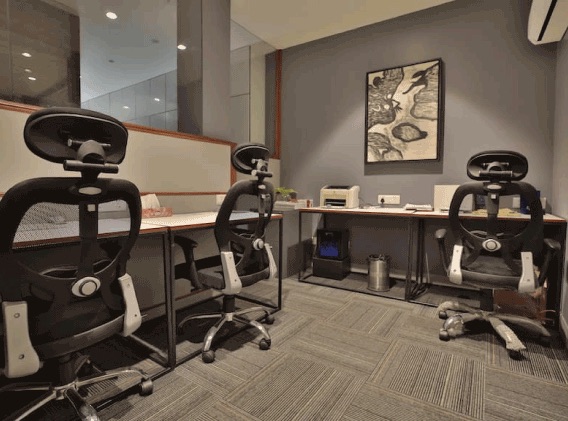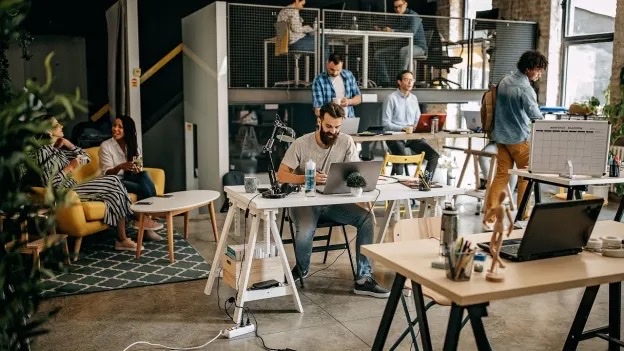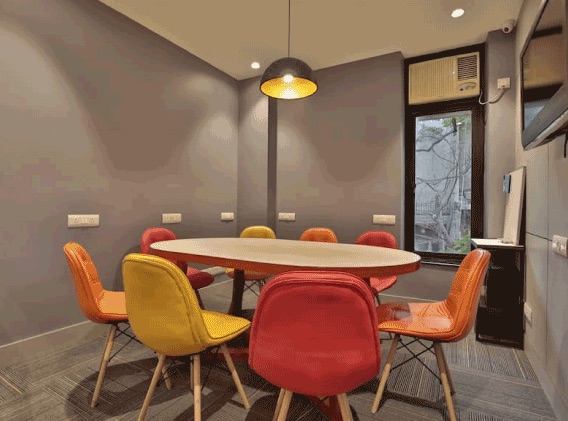ABL Workspaces Rank
1_(1).webp)
-
ABL Workspaces Rank
 01 Dec. 2021
ABL Workspaces
01 Dec. 2021
ABL Workspaces 06:58 AM
06:58 AM
Welcome to ABL Workspaces Rank
Who to Watch
L
Lunar Energy produces new technological and environmental solutions to the problem of clean, carbon free electricity provision for the 21st century. Tidal Stream Energy - a renewable source of power which is created by harnessing the energy built up in the oceans currents by the gravitational pull of the moon and the sun.

Sequoia is a venture capital firm with offices in the US, China, India, and Israel. The firm partners with companies across all sectors and stages of growth. Sequoia was founded by Don Valentine in 1972.

VRBO.com (Vacation Rentals by Owner) was founded in 1995 as a means to give vacation rental owners a way they could self-manage their second homes. VRBO provides an online space for homeowners to advertise their vacation properties and aims to make it easy for travelers to search rental properties in countries throughout the world.
D
Diivu is a scheduling app for SMEs. Smart robots automatically schedule customer appointments.
G
Green Africa Airways is a Nigerian airline.

BlueDot is a Toronto-based social benefit corporation that tracks and predicts the global spread of infectious diseases.
Recent News

Welcome to Corporate shift to hybrid work shores up demand for co-working spaces
ABL Workspace that has so far been primarily operating out of Delhi-NCR with 2,500 seats is now targeting adding 15,000 seats across the country by March 2023. Mumbai, Pune, Bengaluru and Hyderabad are some of the major markets it is eyeing. Besides, the firm is keen on foraying into tier two and three cities given that tech companies have started booking space in smaller cities to save costs. “Coworking will be a good solution for such budgeted problems,” its founder and CEO Akshita Gupta tells Fortune India. It just closed a deal with Kotak Mahindra Bank too.

Welcome to What are the Union Budget 2022 expectations of corporate leaders?
Akshita Gupta, CEO, ABL Workspace, “The coworking segment has grown exponentially over the years and has had a major impact on the performance and utilisation of commercial real estate. I feel now is the time when we should keep into consideration this very aspect and ensure progressive policy reforms to boost the market’s growth. I would want to put forth a humble request to the Finance Ministry to recognizing the coworking space under schemes such as REIT, provide tax benefits and consider reducing the TDS deduction rates to upscale the segment. It would be great if govt can consider bringing coworking spaces into the 2% TDS bracket from the present 10% slab. This will not only boost the market’s growth but will further allow the coworking spaces seamlessly manage the cash flows since it is a service-based segment. I strongly feel that these reforms if introduced will play a major role in driving the growth of the real estate sector in the times to come. Talking from start-ups POV, it is usually entrepreneurs from the early and mid-start-ups that prefer coworking spaces. However, costings like registration charges and stamp duty at registrar offices are borne by the coworking offices and if government can reduce these charges, then it would directly benefit the end-users as they will have to spend less for the services. I am also of the view that if the requisite financial assistance can be provided to the start-ups, then it will indirectly help in driving the growth of the coworking spaces as well.”

Welcome to 2022: The beginning of a golden era of co-working spaces?
According to a Cushman & Wakefield report, coworking operators expanded their portfolio aggressively last year and took on lease 21 per cent more office area - 4.91 million square feet in 2021 from 4.05 million square feet in the previous year - across the top eight cities of Bengaluru, Hyderabad, Pune, Mumbai, Delhi-NCR, Chennai, Kolkata, Ahmedabad to meet the rising demand for flexible workspaces from corporates amid the pandemic.
According to another report by JLL, India's coworking space market is likely to cross 50 million square feet by 2023.
Industry experts say that the sector is only poised to grow stronger.

Welcome to Why Co-working Sector Will Emerge Stronger In 2022
The co-working space has undergone various changes since its inception in the late 2000s. With the death of cubicles and open floorplans gaining popularity to working spaces providing employees with foosball, table tennis and pool tables. But this was before COVID-19, the pandemic that has redefined the concept of working especially co-working spaces in past two years. It has not only forced the employers to change their work policies and strategies but has also been giving preference to hybrid model to perfectly fit into the new normal world.


